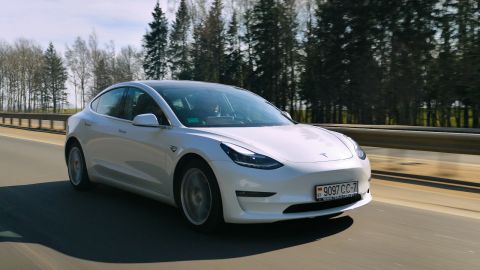Teslas, Chevrolets emerge as frontrunners in realm of EVs for fleet usage
Tesla EVs, followed by Chevrolet models, continue to enjoy dominance extending beyond individual consumers, as the brands actively target daily rental, corporate, and government fleet segments, recognizing the substantial customer base that these segments represent. According to registration data from S&P Global Mobility, Elon Musk-led Tesla Motors maintains its commanding presence in the realm of EVs for fleet usage, with Chevrolets closely following as the second prominent player in the field.
Available data underscores Tesla's significant influence in the EV market, with the Elon Musk-led brand accounting for roughly 33 per cent of all EV sales to fleet operators in the U.S. between July 2022 and July 2023. The brand’s dominance in this field is mainly attributed to its extensive $4.2 billion deal, involving the supply of 100,000 units of the Model 3 to car rental company Hertz.
Despite Hertz’s recent announcement regarding slowing down the pace of adding EVs to its fleet, the Model 3 remains at the forefront with a total of 28,252 units sold during the aforementioned period. The figure accounts for 23 per cent of all fleet EV sales.
Following closely was the Chevrolet Bolt, which accounted for 16 per cent of the brand’s EV sales with a total of 19,502 units delivered, while the Model Y secured the third position with more than 11,000 units sold, and the F-150 Lightning, the best-selling electric pickup truck among U.S. fleet owners, followed suit.
Remarkably, the Chevrolet Bolt EV alone constituted 39 per cent of government EV registrations. This figure easily surpassed the combined government fleet registrations of Ford, which includes electric models like the F-150 Lightning, the Mustang Mach-E, and the E-Transit.
Apart from the Tesla Model 3 and the Chevrolet Bolt, the top 10 EV fleet registrations in the U.S. from July last year to July this year include the Tesla Model Y (11,149), Ford F-150 Lightning (7,718), and Rivian EDV (639), the Polestar 2 (6,128), the Ford Mustang Mach-E (3,992), Kia Niro (3,712) and the Hyundai Kona (3,712).
These statistics underscore the growing significance of EVs within fleet operations. Notably, fleet EVs serve as crucial educational tools for those who are new to electric mobility, granting them an opportunity to immerse themselves in unique features like instantaneous torque and regenerative braking. Furthermore, EVs offer individuals the chance to familiarize themselves with public charging infrastructure, gaining firsthand experience with the differing charging speeds of Level 2 and Level 3 chargers—an experience that they can’t attain during a brief dealership test drive.
